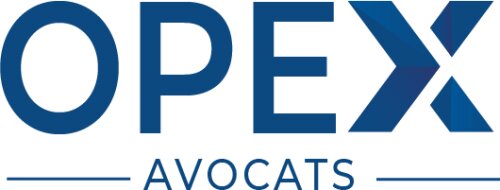Best Mortgage Lawyers in Grenoble
Share your needs with us, get contacted by law firms.
Free. Takes 2 min.
Free Guide to Hiring a Real Estate Lawyer
List of the best lawyers in Grenoble, France
About Mortgage Law in Grenoble, France
Mortgage law in Grenoble, France, mirrors the overarching legal framework established by French national legislation, with specific adaptations that cater to the local context. A mortgage in France is primarily a secured loan in which property or real estate acts as collateral. This area of law involves navigating complex processes and regulatory environments that govern the creation, enforcement, and liquidation of mortgages. As such, it's crucial for potential and existing homeowners in Grenoble to understand the implications of mortgage laws to safeguard their interests effectively.
Why You May Need a Lawyer
There are several scenarios where legal assistance becomes invaluable when dealing with mortgages in Grenoble. Whether you are purchasing a new home, refinancing an existing loan, or transferring property as part of an estate settlement, legal expertise ensures that your rights are protected. A lawyer can help clarify the intricacies of mortgage agreements, assist with dispute resolutions, guide negotiations, and represent you in court if necessary. Furthermore, they can aid individuals facing foreclosure by exploring alternatives and negotiating with lenders.
Local Laws Overview
While the French Civil Code governs mortgage processes across the nation, there are specific legal obligations and protections that are pertinent to Grenoble. Typically, a mortgage agreement in Grenoble must be registered at the local publication bureau to be valid. The loan-to-value ratios, interest rates, and terms will often reflect both lender policies and regional market conditions. Additionally, French law generally mandates a notary public's involvement in finalizing property transactions to ensure all legal requirements are met and properly documented.
Frequently Asked Questions
What is the process for obtaining a mortgage in Grenoble?
Securing a mortgage in Grenoble involves evaluating your creditworthiness, submitting an application to a lender, and obtaining mortgage approval. Once approved, the contract must be notarized and registered with the local authorities.
Can foreigners obtain a mortgage in Grenoble?
Yes, foreigners can obtain a mortgage in Grenoble. French banks offer mortgages to non-residents, particularly within the European Union. It is beneficial to have a solid understanding of the local language or a representative who can help navigate the process.
What are the closing costs associated with a mortgage?
Closing costs in France can include notary fees, registration fees, broker fees, and administrative costs. These fees can total approximately 7-10% of the property's purchase price.
What are the legal consequences of defaulting on a mortgage?
Upon defaulting, the lender has the right to begin foreclosure proceedings, potentially leading to the repossession and sale of the property to recover the unpaid loan balance.
Is private mortgage insurance required?
Private mortgage insurance is not typically required in France, but lenders may require assurances or guarantees, such as a life insurance policy, to protect their investment.
Can I refinance my mortgage?
Refinancing is possible, and it can help manage debts or leverage property equity. It's vital to consider fees and new interest rates before proceeding.
What types of mortgages are available?
French banks offer several mortgage types, including fixed-rate, variable-rate, and interest-only mortgages. Each has its advantages and requirements.
Does French mortgage law protect borrowers?
Yes, French mortgage law includes consumer protection clauses, ensuring transparency and fair practices. Borrowers are entitled to clear contract terms and fair conduct from lenders.
How long does it take to finalize a mortgage?
Finalizing a mortgage can take from a few weeks to a few months, depending on various factors, including the complexity of the transaction and the responsiveness of involved parties.
What is a 10-day cooling-off period?
The 10-day cooling-off period is a statutory time frame allowing mortgage borrowers to reconsider their agreements before finalizing, thus providing a safeguard against impulsive decisions.
Additional Resources
For further assistance, consider consulting the “Chambre des Notaires de l'Isère” for guidance on notarial services and legal processes. The “Agence Nationale pour l’Information sur le Logement (ANIL)” offers access to a wealth of housing information and advisories. Additionally, local law offices in Grenoble can provide personalized legal counsel tailored to specific mortgage concerns.
Next Steps
If you need legal assistance with a mortgage in Grenoble, start by consulting with a local lawyer specializing in real estate and finance law. Request an initial consultation to discuss your situation, explore options, and formulate a strategy tailored to your needs. It's recommended to gather all pertinent documents before your meeting, including existing contracts, financial records, and correspondence with lenders, to facilitate an effective consultation.
Lawzana helps you find the best lawyers and law firms in Grenoble through a curated and pre-screened list of qualified legal professionals. Our platform offers rankings and detailed profiles of attorneys and law firms, allowing you to compare based on practice areas, including Mortgage, experience, and client feedback.
Each profile includes a description of the firm's areas of practice, client reviews, team members and partners, year of establishment, spoken languages, office locations, contact information, social media presence, and any published articles or resources. Most firms on our platform speak English and are experienced in both local and international legal matters.
Get a quote from top-rated law firms in Grenoble, France — quickly, securely, and without unnecessary hassle.
Disclaimer:
The information provided on this page is for general informational purposes only and does not constitute legal advice. While we strive to ensure the accuracy and relevance of the content, legal information may change over time, and interpretations of the law can vary. You should always consult with a qualified legal professional for advice specific to your situation.
We disclaim all liability for actions taken or not taken based on the content of this page. If you believe any information is incorrect or outdated, please contact us, and we will review and update it where appropriate.








